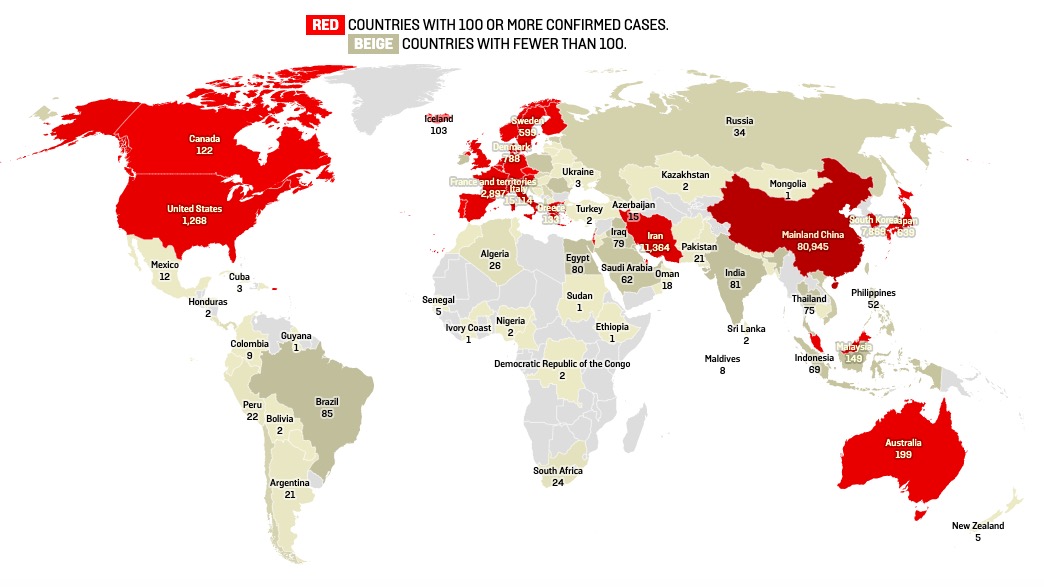
I feel like a lot of foreign correspondents in Kenya are missing the point of the critique of the @nytimes over the #RiversideAttack photos. /1
The majority of the tweets I’ve seen about this from #KOT have essentially said “please take down the photo of brutally murdered black people, esp since you wouldn’t show an equivalent photo if they were white.” /2
They asked the NYT reporter to take down the photo. She said she doesn’t pick the photos. Neither she nor some other foreign correspondents discussing this have acknowledged that showing dead bodies of some races but not others raises real questions of journalistic ethics. /3
There were subsequently angry calls from #KOT to deport the NYT reporter. Other foreign correspondents replied that this is an attack of freedom on the press. /4
Let me take a step back here. The NYT is an American paper. American media institutions tend to replicate racial hierarchies of power, because they were founded in a country predicated on racial hierarchies of power. They reflect and perpetuate the society around them. /5
There is lots of evidence across many domains that black people’s lives are valued less than whites’ in the US. In the media, this shows up in articles about police violence, which use mugshots of young black men murdered by police, and professional photos of their killers. /6
Papers will also embed videos of black people getting killed by police, even though many black activists point out that this is traumatizing. By contrast, there are also lots of white victims of police violence or mass shootings, but their bodies are rarely shown. /7
The point here is that US papers have ascertained, I think correctly, that seeing the dead bodies of their loved ones on the front page is hard for white people. But people of other races don’t seem to merit the same respect. /8
People sometimes respond “well, that type of photo captures the moment and is newsworthy.” But so would a photo of the bodies of the Parkland school shooting victims. If you’re making this argument, you need to think critically about why no one published the latter. /9
So basically, the #RiversideAttack photos are not an isolated incidence. They continue a long tradition of presenting white grief as important and black grief as irrelevant. /10
When #KOT pointed this out, orgs like the @nytimes and the @FCAEA responded in a way that essentially said, “Yes, your grief is irrelevant, and you’re making the whole situation worse by complaining about our actions.” /11
Journalism is a hugely challenging career. Lots of people do great work in tough circumstances for little budget. I get that the response to seeing another journalist criticized for something not her fault is to close ranks and disparage attacks on press freedom. /12
But it seems clear to me that defending press freedom by refusing to engage with very well substantiated critiques that your editorial practices are implicitly racist is not the way forward. /13
I’m a white American. We all grow up racist because that’s the society and institutions around us. We all need to actively unlearn what we’re taught. This includes pressing the US media to be better. /end
Adding a few more thoughts to this thread. I think freedom of the press is really important. In my view the NYT handled this situation badly, but it's not clear there was a deportable offense. I also think #KOT and journalists are talking past each other on this point. /15
There's a question of privilege here. In journalists' view, they often face threats for doing their work. The prospect of deportation is a real threat. Meanwhile, #KOT are pointing out that Western media has a long history of depicting Africans disrespectfully. /16
So journalists are saying, "the call for deporting a reporter you dislike is antidemocratic." And #KOT are saying "why do you get to disrespect us, then call us antidemocratic when we complain about it? Why do you get to set the rules of the game?" /17
Within Kenya, foreign correspondents are seen as people with a LOT of privilege. They get to shape coverage of African issues for the world. In this context, people feel that criticizing coverage which seems to perpetuate racism is speaking truth to power. /18
Of course, in many places journalists (esp local ones within Africa, and POC in the US) don't have a lot of privilege. In that context, having a bunch of angry people on Twitter calling for a reporter to be deported over a photo editor's decision seems extreme. /19
My analysis rests on the view that, in the context of racial politics in both the US and Kenya, the NYT is a privileged institution. It has a responsibility to listen to critiques from people it covers, who have relatively less privilege, and take them seriously. /20
To be clear, I also don't think that threatening a reporter with violence is appropriate. Someone pointed out to me that this is what the @FCAEA letter was responding to. /21
@FCAEA A lot of what I'm seeing in my mentions now is that both sides here have legitimate grievances (reporters want to be safe, Kenyans don't want to see racist photos in the paper), and are feeling pretty threatened. It's hard to listen with empathy in that context. /22
• • •
Missing some Tweet in this thread? You can try to
force a refresh




